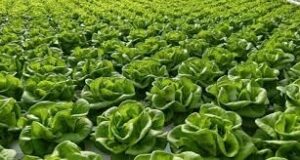In today’s global food market, safety and sustainability have become essential for producers and exporters. Global GAP Consultancy plays a vital role in helping farms, agribusinesses, and food processing companies meet international standards. These consultancies guide agricultural businesses through the process of achieving Global GAP certification, ensuring that food production meets safety, quality, and environmental benchmarks recognized worldwide.
Understanding Global GAP and Its Purpose
Global GAP stands for Good Agricultural Practices. It is an internationally recognized set of standards designed to ensure safe, sustainable, and traceable agricultural production. The certification focuses on various sectors including fruits, vegetables, livestock, aquaculture, and flowers.
What Is Global GAP Certification
Global GAP certification is a proof that a farm or production facility adheres to globally accepted agricultural practices. It ensures that products are safe for consumers and produced in environmentally responsible ways. The certification covers areas such as food safety, worker welfare, animal health, and environmental management.
Why Consultancy Is Important
Achieving certification can be complex, involving documentation, audits, and implementation of new procedures. This is where Global GAP consultancy becomes essential. Consultants assist farms and agribusinesses in understanding requirements, preparing documentation, and maintaining compliance throughout the process.
The Role of Global GAP Consultancy in Agriculture
A Global GAP consultancy provides expertise and guidance to help agricultural businesses meet the certification requirements efficiently. They bridge the gap between farmers and international food safety standards.
Advisory and Assessment Services
Consultants begin by assessing existing farm practices and identifying areas that require improvement. They evaluate the level of compliance with Global GAP criteria and prepare a roadmap to achieve certification.
Documentation and Implementation Support
Documentation is one of the most critical aspects of certification. Global GAP consultants help in preparing records, management plans, and risk assessments. They also assist in implementing corrective actions and monitoring progress.
Audit Preparation and Continuous Improvement
Consultancies train staff and management to prepare for official audits. They conduct internal audits, simulate inspections, and ensure that the organization is ready for certification. After certification, consultants help maintain compliance through periodic reviews and updates.
Key Components of Global GAP Standards
Global GAP standards are structured around several key principles that promote responsible and sustainable farming.
Food Safety and Traceability
The certification ensures that agricultural products are safe for consumption. It includes traceability systems that allow producers and buyers to track products from farm to market.
Environmental Management
Sustainable use of natural resources is a key focus. Farms are required to manage water, soil, and waste responsibly to minimize environmental impact.
Worker Health and Safety
The standard emphasizes worker welfare. It ensures fair working conditions, proper training, and safe work environments for farm employees.
Animal Welfare
For livestock and aquaculture producers, animal welfare standards are crucial. They promote humane treatment, proper nutrition, and disease prevention.
Benefits of Working with Global GAP Consultancy
Collaborating with a Global GAP consultancy brings several advantages to farms and agribusinesses aiming to meet international food safety standards.
Simplified Certification Process
Consultants simplify the complex certification process by providing structured guidance, templates, and training. This reduces the burden on farm owners and management teams.
Improved Operational Efficiency
During consultancy, farms adopt better management systems, record-keeping, and monitoring methods. These improvements lead to higher efficiency and productivity.
Market Access and Competitiveness
Global GAP certification opens doors to international markets. Many retailers, importers, and distributors require certified products, giving farms a competitive advantage.
Enhanced Reputation and Trust
Certified farms gain credibility and trust among buyers and consumers. This recognition can strengthen business relationships and brand value.
Steps Involved in Global GAP Certification Through Consultancy
Global GAP consultancy follows a structured process to help clients achieve certification effectively.
Step 1: Initial Consultation and Gap Analysis
Consultants begin by reviewing existing operations to identify gaps between current practices and Global GAP standards. They develop an action plan based on this assessment.
Step 2: Training and System Development
Training sessions are conducted for staff and management to ensure awareness of certification requirements. Consultants help design and implement management systems aligned with the standard.
Step 3: Documentation and Record Keeping
Proper documentation is critical. Consultants guide farms in preparing and maintaining records such as farm maps, pesticide logs, and worker training reports.
Step 4: Internal Audit and Review
Before the final audit, an internal audit is conducted to verify readiness. Consultants ensure all corrective actions are taken and compliance is achieved.
Step 5: External Audit and Certification
Once the farm is prepared, an accredited certification body conducts the final audit. After a successful assessment, the Global GAP certificate is awarded.
Sectors That Benefit from Global GAP Consultancy
Global GAP consultancy services cater to a wide range of agricultural sectors, each with unique requirements.
Fruit and Vegetable Farms
Consultancies assist producers in implementing safe cultivation practices, handling systems, and packaging methods that comply with food safety norms.
Livestock and Poultry
Consultants guide farmers in maintaining proper hygiene, animal welfare, and disease control measures.
Aquaculture
Fish and seafood producers receive assistance in implementing sustainable feeding, water management, and harvesting practices.
Flowers and Ornamentals
In the floriculture industry, consultancy services ensure environmental compliance and responsible use of chemicals.
Challenges in Achieving Global GAP Certification
While certification offers many benefits, the process also presents certain challenges that consultancies help overcome.
Complex Documentation
Many farms struggle with maintaining detailed records required by the standard. Consultants provide templates and digital tools to simplify this process.
Continuous Compliance
Compliance is not a one-time activity. Consultancies help farms establish ongoing monitoring systems to maintain certification.
Cost and Resource Allocation
The certification process involves time, training, and financial investment. Consultants assist in resource planning and optimizing costs through efficient implementation.
Future of Global GAP Consultancy in Sustainable Agriculture
As global demand for safe and sustainable food grows, Global GAP consultancy services are becoming increasingly relevant. The agriculture sector is moving toward automation, digital traceability, and climate-smart farming techniques.
Digital Tools and Data Management
Consultancies now use software platforms to track compliance, manage documentation, and monitor environmental parameters.
Integration with Other Certifications
Many farms aim for multiple certifications, such as ISO 22000 or organic certification. Consultancies help integrate these systems for streamlined management.
Focus on Climate and Sustainability
Consultants are emphasizing climate-smart agriculture, encouraging farms to adopt eco-friendly practices that reduce emissions and conserve resources.
Conclusion
Global GAP consultancy plays an essential role in helping agricultural businesses achieve international certification standards. By offering expert guidance, training, and system development, consultancies make the certification process manageable and efficient. For farmers, producers, and exporters, working with a consultancy ensures compliance, enhances market access, and supports sustainable agricultural growth. As food safety and sustainability become global priorities, Global GAP consultancy will continue to shape the future of responsible farming.





